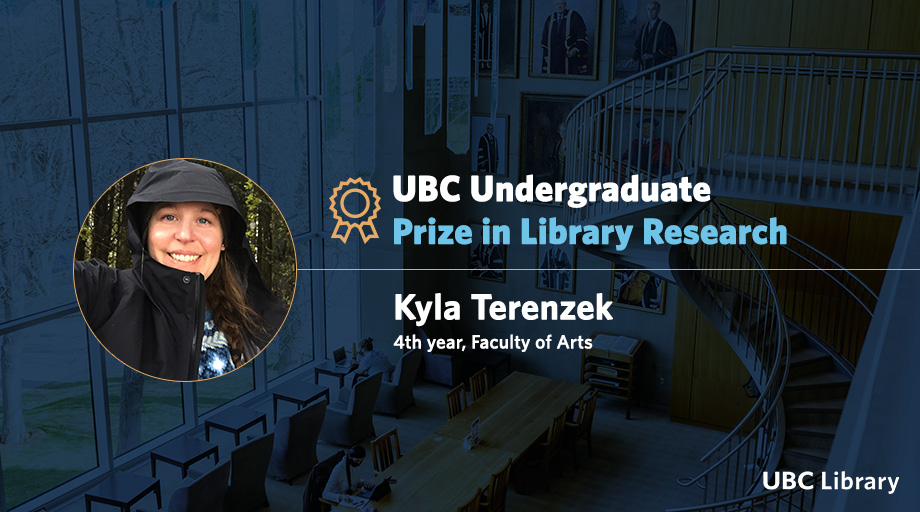
About the prize
The UBC Undergraduate Prize in Library Research is a way to showcase students’ effective and innovative use of library services, information experts and resources provided by the UBC Library. Applications for these prizes also provide students with an opportunity to reflect on their information-seeking experience, showcase their research beyond the classroom, and promote scholarship excellence at the undergraduate level at the University of British Columbia.
The Prize was established by UBC Library to encourage more and deeper use of its resources and collections, to advance information literacy at UBC, and to promote academic excellence at UBC.
Q: Could you tell us a little bit about your project?
This project was inspired by my wonderful experience in BIOL 342 where I was encouraged to study blue mussels for a class project. I immediately felt very connected to the group of species since I live on an island where a massive number of mussels died during the heat dome of 2021. After the heat dome, I noticed that there appeared to be a difference in the numbers of mussels that were lost around the islands where I completed the study based on how much direct sun they received when the tide was out during the heat dome. More bare patches occurred where mussels had once occupied the rocks on south- and west-facing beaches and rocks compared to east and north. Given that three closely related species of marine mussels are found on BC’s coast, two of which are known to be invasive and have higher heat tolerance than the indigenous mussel species, I wondered if there would be more surviving heat tolerant non-indigenous mussels on rocks and beaches that faced south and west. I also wondered if this was the case, if the new mussels that recruited to the south and west facing rocks and beaches would be more likely to be invasive since mussels can be more likely to settle near adults of their own species.
The results of my study surprisingly showed that all the mussels on the islands were indigenous but also found significant differences in shell size based on the cardinal direction the beach and rocks faced, and a significant difference in mantle pigment colour based on the amount of seaweed canopy coverage over mussel beds in the islands. Both mantle pigment and shell shape have been related to selection pressure, which could be interesting for future investigations.
Q: What does winning this prize mean to you?
“This reaffirms the immense value in connecting with UBC Library and its incredible resources and staff, faculty and mentors at UBC.”
I am extremely grateful and honored for this award and experience. This reaffirms the immense value in connecting with UBC Library and their incredible resources and staff, faculty and mentors at UBC. I am beyond grateful for the knowledge and support of my supervisor for this project, Professor Celeste Leander. I could have never imagined having such an amazing and inspiring research opportunity in my undergrad.
Q: What are your plans for the future?
I’ve come to love the strange and wonderful world of mussel biology through this project and hope to continue to study blue mussels after my undergrad and continue to work to help tell their story. Because of the complex life histories of invertebrates, it can be difficult to understand how organisms such as blue mussels may respond to climate change over time, so participating in continued monitoring and research would be a rewarding way to participate in their conservation and building coastal resilience. I have participated in community science projects in the past and hope to I hope to pay forward the incredible support that I have been given at UBC through similar projects in the future.
Q: Do you have a favourite research spot at UBC Library?
“Being able to connect with UBC Library’s resources online, as well as in person, allowed a research project like this to be accessible even through a very stormy winter where it was difficult to make it to the mainland by boat.”
My favorite library research place is virtual since I live quite far from campus. Being able to connect with UBC Library’s resources online, as well as in person, allowed a research project like this to be accessible even through a very stormy winter where it was difficult to make it to the mainland by boat.